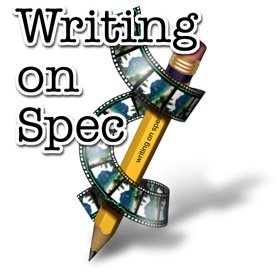It's a book by Napoleon Hill. It's Andrew Carnegie's secret to success. I'm sure a ton of people read this book figuring it'll show them how to get rich easily. The book, however, is not at all about how to make money - really - nor is it a get rich quick scheme.
This book should be ready by everybody by age 15. The only problem is that they won't really understand it until they're in their 30's. Some of us already know what it has to say intuitively. Some of us will learn it sooner, rather than later, bu for the bulk of us, we'll learn this lesson too later or not at all.
This is going to sound so common sense you'll wonder why it's in a book at all.
People always get what they want the most.
That's it.
Essentially, That's the bottom line.
The problem is what we want isn't always what we think we want. That's the rub. That's what the book talks about to some degree.
It's all about know what you want, then going after it without remorse, regret or regard for consequences.
The folks that know this intuitively are the ones that are doing things early. Gymnasts, athletes, creative prodigies. Folks with talent and/or drive they have all by themselves. This can't be pushed on you by a parent or sibling. It has to be something you want - you - and want very badly. That's the crux of the whole thing. It has to be something that you want more than anything and you have to be willing to sacrifice anything (or everything) to get it. While sacrificing anything/everything sounds rather sinister, it's not necessarily so - nor does it have to be a permanent thing.
For example: We'll use screenwriting now since that's what I'm supposed to be all about.
If you want to be a TV writer, you have to live out in CA (for the Hollywood TV market anyway). There's no getting around that. It's an established fact. Yet so many people toil away working on TV scripts outside of CA. Why? At the very least, you need three things to break into Hollywood TV:
1) Location - gotta be in LA (best) or at least CA - so you can make a meeting
2) Talent - have to be able to entertain with your writing
3) Contacts - have to know somebody willing to speak up for you
You can practice writing and get enough feedback to determine if you have enough talent.
If you play the Kevin Bacon game with your own life (pick 10 people and invariably somebody knows somebody who knows somebody in Hollywood), then you can make some contacts
However, you have to move to CA - preferably LA. You'll be making sacrifices - perhaps friends, family, maybe a lucrative or enjoyable job. But if you can't make the move - you don't want to be in TV badly enough. As such, Napoleon Hill says the odds are against you making it.
See - that's the whole point of the book and this post. You *always* get what you want. While you may think you want to be rich, or thin, or doing whatever job, you really do get what you want which is whatever you are now. It might be a job you don't like, but it doesn't require much from you. If you're overweight, but say you want to be thin or in better shape - maybe you want to not limit your food intake or exercise as much as required to be in better shape.
So when you say you want to be a screenwriter, you need to think about what you're willing to give up in order to make it.
It's also a tip for everybody under 25 and wanting to do whatever. Take a shot at it now. If it's a career, no mater what, give it 10-15 years. That's how long somebody typically takes to make it to where they want. I'm not talking about making it as a janitor, but as a professional. Med school, law school, college, internships - it all takes time. So give it your best shot and don't bail out. When you're done, you'll still have time to settle for something else and you'll know that you gave it your everything.
